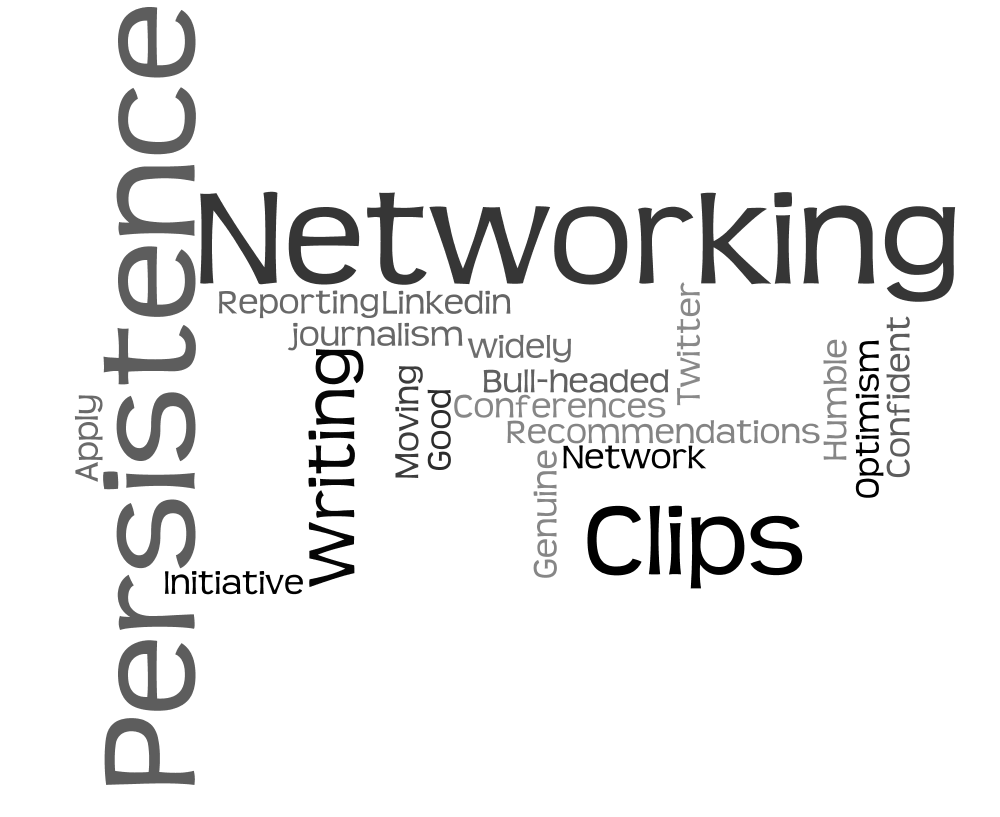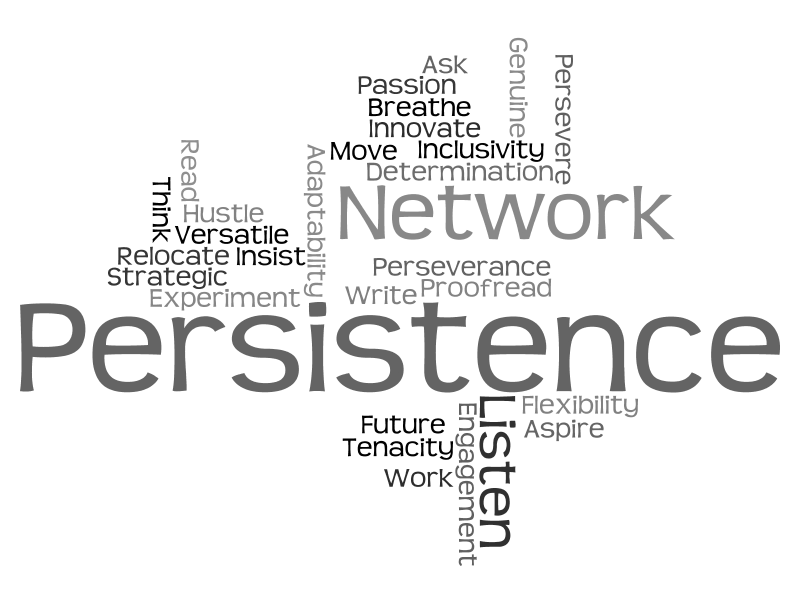Okay, chances are this didn’t really happen.
I’m not sure how I heard this, but the story – false or not – stuck in my head when I was beginning my journalism career.
The story allegedly goes that a young Herb Caen, who later became the legendary San Francisco Chronicle columnist, walked into a newsroom and asked for a job.
The clerk asked Caen if he knew how to type.
Caen said no… but was hired anyway.
Whether this actually happened or not, getting a journalism job these days is a bit more challenging. When I started, aspiring journalists needed to have one, big internship to get closer to landing your first job. Now, you need three or more… or, you start your own publication.
As a flood of new journalists graduate from J-School, I asked people to share their experiences in landing their first, paying journalism job and what advice they have to offer newbies getting into this great calling.
The crowdsourcing led to dozens and dozens of responses, the majority anonymous due to an early decision I made on the Google form. You can see the unedited results here and read a collection of first jobs and earlier tips here. I did my best to try to break down the diverse responses into digestible takeaways.
What are the top three skills you think journalists need to get a job now?
Traditional skills dominated the list. A strong foundation on the basics like writing, reporting, ethics, news judgement… and a few mentioned AP Style.
“Don’t think your social media expertise or wildly-popular Hipstamatic photos will get you anywhere; AP style, strong English as both a writer and editor, research and fact-checking skills, and news judgment will make you stand out (you’d be surprised how many people doze through reporting 101 and 202 in favor of their multimedia courses, or what-have-you),” said one participant.
But of course, a close second is having basic technical knowledge. Know the tech, but more importantly know how to use it to tell a good story.
Attitude and work ethic is a quality that stands out.
“Everyone is doing more with less these days, you’ll be expected to work hard and fast and to do so with little hand-holding. You need to show a positive, enterprising, tenacious and competitive attitude.”
Another participant said: “Proving you’re willing to take on what nobody else wants to, and doing it well. (You don’t have to like it, but don’t complain.)”
These suggestions also stood out:
“Bullshitting abilities (resume, website, etc — fake it ’til you make it)”
“You have no idea how much patience you’ll need for this job, it really is a skill that not a lot of people have.”
“Managing management”
What is the key to getting a journalism job?
Without a doubt, responders overwhelmingly said it’s all about who you know when you are trying to land your first – and future – jobs.
“Know the right people – networking is huge. Go to job fairs and journalism conferences, make appointments to see editors or reporters anytime you go on vacation, ask friends to introduce you, and keep in touch when you meet someone,” said a participant. “I once met an LA Times editor sitting next to me at the theater, I got an internship after keeping in touch even after I was rejected once, I got another internship by sitting in the lobby from 9 am to 2 pm asking to see the editor.”
Here are some networking tips from one participant:
-Reach out to them on Twitter, look at who follows them and whom they follow and educate yourself about the subjects they discuss with colleagues in their tweets.
-Attend their public lectures and presentations, comment on their blogs and attend conferences they attend.
-Participate in chats they participate in
-Read blogs that address topics in your desired niche.
I can’t echo this enough. From visiting newsrooms to cyberstalking people, do what you can – within reason – to meet people in real life and stand out from the pile of resumes. Use your network.
That said, this journalist had a different take on networking.
“Knowing people. ‘Networking’ is for shills. But seek out people whom you admire and they will think you are so smart for recognizing their brilliance that they’ll want to hire you or help you out. People in our industry are vain.”
Another theme was to apply widely and have a thick skin.
“To get a job, apply to lots of news outlets, not just your dream workplace. Start small and work your way up from there,” said a participant.
And, perhaps most importantly, once you get your foot in the door, you have to have the skills you keep that job.
Other great tips:
“Recommendations from people who have been blown away by your portfolio — and can testify that you did it yourself.”
“A willingness to question and push traditional journalism practices while still being willing to work your way up and learn from veteran journalist.”
“Know also that being a journalist means you NEVER stop learning. You need to always know a little something about everything to be at the top of your game. Even the best journalists still take some kind of classes or seminars to build their skills constantly.”
“Editors and other journos can tell a sharp blade from a dull one, and keeping your edge keen is what will get you your start and keep you employed.”
Give a one-word tip to aspiring journos trying to land a gig.
“Not giving up after 97 rejections,” advised one participant who was clearly persistent.
“The key is to get in the door. I don’t care if it’s a tiny weekly in Nowheresville. Just get that first job. The rest will follow,” said another.
We all made it – and are making it – in good times and bad. Journalism is a calling. And if you want to make it, you can never give up. Good luck and remember to pay it forward.











